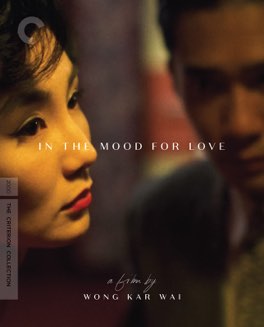WONG KAR-WAI
In the Mood for Love
There is a certain romanticism about unfulfilled love, that works really well in cinema, and terribly in real life. The long glances, the wayward sighs, the missed connections, the fleeting moments. All of it is so unspeakably painful, but beautiful to watch when it’s gorgeous actors on a screen. If you have ever experienced anything like this in your personal life though, it’s just horribly awful.
This film tells the story of two neighbors, a man and a woman, in 1960s Hong Kong. They are both married, but their spouses are seemingly always away on business. Initially they are polite but distant from each other, in keeping with the social customs of the period. Friendships between men and women are viewed with distrust, and the assumption is of inappropriate behavior. Eventually, they discover secrets about their spouses that brings them together, and leads to all the gloriously melancholy pining I mentioned above.
What the film does best, besides being so beautiful it hurts, is to never really show the significant others of the main characters. We see them almost not at all, really only a couple of shots of the backs of their heads, and certainly never of their faces. They are disembodied voices, and as soon as the story can get away with it, they are exiled offscreen. It’s absolutely essential to making this film work. If the spouses were real characters, than we might feel bad about what the main characters are doing to them. Because they are only ideas, and not people, they are just catalysts, and not anyone to invest in emotionally. It’s a brilliant narrative device, and one that makes this whole brilliant thing work.
